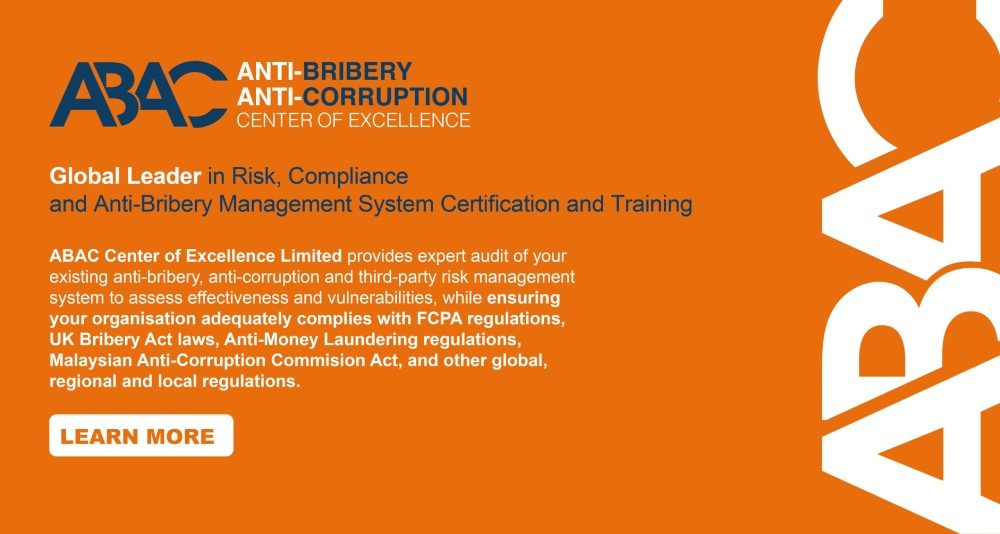In recent news, the enforcement of Section 17A of the Malaysian Anti-Corruption Commission (MACC) Act has sent shockwaves through the corporate world. This landmark legislation is aimed at combating bribery and corruption, holding companies and their top management accountable for corrupt practices within their organizations. With the heightened focus on ethical conduct, employers are now facing significant changes and challenges in their business operations.
In this article, we delve into the intricacies of Section 17A of the MACC Act and explore how its enforcement affects employers across various industries. We shed light on the critical steps businesses must take to ensure compliance and uphold ethical standards within their organizations.
What Is Section 17A Malaysian Anti-Corruption Commission (MACC) Act?
Section 17A of the Malaysian Anti-Corruption Commission Act (MACC Act) 2009 is a crucial provision that focuses on corporate liability for commercial organizations. The provision is aimed at making companies and their top-level management accountable for corrupt activities conducted by their employees or associates, regardless of whether the management is aware of it or not.
Under Section 17A of the MACC Act 2009, a commercial organization is said to be guilty if corrupt activities such as bribery or kickbacks are carried out by any of its employees or associates for the benefit of the organization. This applies to all Malaysian companies, including local, foreign, and state-owned enterprises.
The consequences of being found guilty under Section 17A for commercial organizations are severe. The penalties include a fine of not less than ten times the value of the bribe or RM 1 million, whichever is higher, imprisonment for up to 20 years, or both.
It is crucial to note that commercial organizations can defend themselves against the charges if they can demonstrate that they have implemented ‘Adequate Procedures’ to prevent such activities. Organizations are encouraged by the government to adopt good corporate governance practices, including establishing an anti-corruption compliance framework and conducting internal audits to minimize the risk of corrupt activities.
On 18 March 2021, the Malaysian Anti-Corruption Commission (MACC) charged a company and its director with a new corporate liability offense. They allegedly paid RM 321,350 in bribes to secure a subcontract. This marks the first case under Section 17A, demonstrating MACC’s commitment to combating corruption since its enforcement in June 2020.
Impact of Non-Compliance with Section 17A on Businesses
Businesses are urged to fear the potential consequences of non-compliance with Section 17A and the corporate liability regime. The enforcement of this law signals a strong commitment by the Malaysian Anti-Corruption Commission (MACC) to root out corruption and hold commercial organizations accountable for the actions of individuals associated with them. This law can impact businesses as:
Severe Financial Penalties
In Malaysia, the penalties for non-compliance with the Section 17A(1) of the MACC Act are severe and can be financially crippling to a business. The minimum fine is ten times the value of the bribe offered or received, or RM 1 million, whichever is higher. This means that even a small instance of bribery can result in a significant financial penalty for a company. For medium and large businesses, these fines can be in the millions. The financial burden of these fines can impact a company’s financial stability and ability to operate, leading to potential bankruptcy.
Reputational Damage
Businesses that engage in bribery or other corrupt practices suffer significant reputational damage due to negative publicity and public perception. This can lead to a loss of trust from customers, investors, and other stakeholders. In today’s globalized economy, reputational damage can spread rapidly, potentially affecting a company’s ability to operate in other markets where it operates. The impact on a company’s reputation is often long-term, making it difficult to regain the trust of stakeholders, even after implementing robust anti-bribery and corruption measures.
Legal Consequences
Companies can face severe legal consequences if found guilty of bribery or corruption under Section 17A(1) of the MACC Act. Prison sentences of up to 20 years can be imposed for those involved in corrupt acts, and company directors, controllers, and management can be presumed guilty unless they can prove otherwise. This means that individuals and the company can face legal consequences for bribery or corruption-related activities, potentially leading to significant financial and other costs.
Loss of Business Opportunities
Being associated with bribery and corruption can deter potential business partners and clients, losing lucrative opportunities and market share. This is because companies with a reputation for unethical conduct are often viewed as high-risk, and partners and clients may choose to work with more trustworthy businesses. The loss of business opportunities can have a cascading effect on a company’s financial performance, reducing its market share, and ultimately leading to decreased revenue.
Diminished Investor Confidence
Investors are increasingly looking at ethical and socially responsible companies, and a company that fails to adhere to Section 17A of the MACC Act is often viewed as high-risk. This can lead to reduced investor confidence and potential capital flight. The loss of investor confidence can impact a company’s access to capital, making it challenging to fund critical projects or operations, leading to financial difficulties.
Impact on Supply Chain
Non-compliance with Section 17A can impact a company’s supply chain as suppliers and business partners may hesitate to work with a company with a poor reputation for ethical conduct. This can limit a company’s access to critical resources and materials, disrupting the supply chain. Disruptions in the supply chain can lead to production delays, and increased costs, ultimately impacting a company’s ability to meet customer demand and fulfil orders.
Legal Costs and Investigations
Defending against allegations of corruption and undergoing investigations can be financially draining and divert resources from core business activities. This is because legal fees associated with investigations and legal proceedings can be substantial, often running into millions of dollars. In addition, investigations and legal proceedings can be time-consuming, leading to distractions from core business activities, ultimately impacting a company’s financial performance.
Adverse Regulatory Scrutiny
Non-compliance with Section 17A of the MACC Act can trigger increased scrutiny from regulatory authorities, leading to further investigations and potential sanctions. This can be time-consuming and costly for businesses, adversely impacting the company’s reputation, financial performance, and ability to operate.
How To Comply With Section 17A Malaysian Anti-Corruption Commission (MACC) Act
Complying with Section 17A of the MACC Act is critical for businesses operating in Malaysia to mitigate the risks associated with bribery and corruption. This corporate liability provision holds commercial organizations accountable if their associates engage in corrupt practices to obtain or retain business advantages. The good news is that achieving ISO 37001 certification can be a powerful solution to demonstrate a commitment to anti-bribery practices and bolster your organization’s defense against corruption-related risks.
ISO 37001 Certification as a Powerful Solution
ISO 37001 is a globally recognized standard for Anti-Bribery Management Systems (ABMS). It provides a framework to help organizations implement effective anti-bribery measures, reduce the risk of bribery occurring, and demonstrate compliance with international anti-corruption best practices. ISO 37001 focuses on preventing, detecting, and responding to bribery incidents, making it a valuable tool for organizations aiming to comply with Section 17A of the MACC Act.
Why Choose ABAC™ for ISO 37001 Certification
ABAC™ is a leading expert in anti-bribery and anti-corruption solutions, trusted by businesses worldwide. Choosing ABAC™ for your ISO 37001 certification process can offer numerous advantages to enhance your organization’s anti-bribery efforts:
- Expertise and Experience:
ABAC™ consultants are experts in anti-bribery measures and have extensive experience in implementing ISO 37001 standards across various industries. They can provide valuable insights and practical guidance to tailor the ABMS to your organization’s specific needs and risks.
- Customized Approach:
ABAC™ works closely with your organization to understand its unique operations and challenges, developing a customized approach that aligns with your objectives and existing compliance programs. - Comprehensive Assessment:
ABAC™ conducts thorough risk assessments to identify bribery vulnerabilities within your organization, helping formulate appropriate preventive measures and controls. - Policy and Procedure Development:
ABAC™ assists in creating robust anti-bribery policies and procedures that align with ISO 37001 requirements and are easily understood by all employees. - Training and Awareness:
ABAC™ provides training sessions to raise awareness among your employees about bribery and corruption risks, the importance of compliance, and how to report suspicious activities. - Certification Process Support:
ABAC™ guides your organization through the entire ISO 37001 certification process, ensuring all necessary measures are in place for a successful certification. - Global Coverage:
With a vast network of certified professionals positioned across five continents, ABAC™ provides extensive and effective global coverage for organizations operating in multi-jurisdictional and multi-cultural environments. - Third-Party Risk Management:
ABAC™’s 3PRM™ program helps mitigate risks from third-party affiliations, protecting your organization from liability and brand damage. - Expert Guidance and Support:
ABAC™’s team of compliance professionals is dedicated to helping organizations overcome business risks and shape the future of compliance solutions globally.
By partnering with ABAC™ for ISO 37001 certification, your organization can demonstrate its commitment to ethical business practices and effectively comply with Section 17A of the MACC Act. ABAC™’s tailored anti-bribery solutions and extensive global coverage make it the best choice to strengthen your organization’s anti-corruption efforts and safeguard against the devastating impacts of bribery and corruption. Contact ABAC™ today to embark on a journey towards ISO 37001 certification and build a resilient defense against corruption risks.





